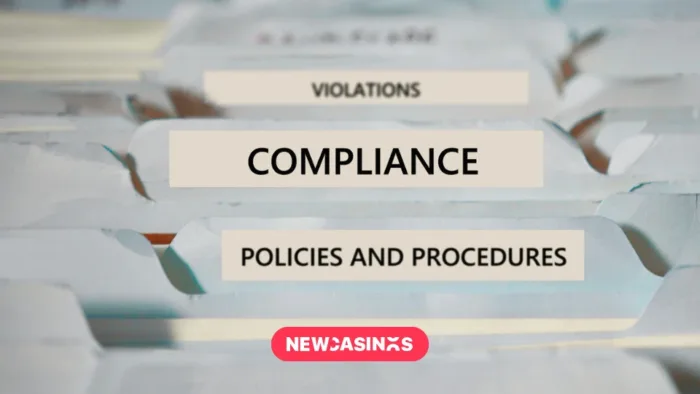How Geo-Blocking Works
While geo-blocking sounds complicated, it is actually an easy process that happens behind the scenes with no player involvement. Think of it like border control, but you don’t need to get your passport out to enter. IP geolocation is a smart bit of technology that can determine your approximate geographic location. Geolocation comes in three main formats: device-based, IP based and a blend of the two.
Device-based discovers player location through GPS and cellular networks via the device you are using. IP addresses work with internet-connected devices through specific numerical codes. The location tracking differs in accuracy depending on whether it is country-level, state/province-level or city-level. You’ll experience accuracy at a rate of 99.99% at country level, 98% at a regional level and 97% at a city level and these figures are improving every day.
Online casinos are restricted in certain countries and from certain players, like self-excluded players, so sites need software in place to prevent these people from entering the site. They use methods like IP filtering and GPS verification to control the site’s traffic and keep the operator compliant.
Legal and Regulatory Reasons
Geographical restrictions can be frustrating but they are in place to keep you safe. For example, online casinos that are licensed by the United Kingdom Gambling Commission (UKGC) in the UK are banned from featuring slots with an autoplay feature and may not offer welcome bonuses that exceed £100. All UKGC licensed casinos will have to adhere to these guidelines that customers may not be satisfied with. Players have been seeking alternatives to UKGC casinos by using VPNs that change their geolocation. This isn’t explicitly illegal but can be dangerous as these alternative casinos may lack secure regulations and licensing.
All online casino operators must comply with local regulations and these guidelines will look different depending on country or region. If an operator is found to be not complying with these regulations, they will receive substantial fines and it will weaken their reputation for the majority of players who just want a safe space to play. For reference, the UKGC fined Spreadex Limited £2 million after they found anti-money laundering (AML) and social responsibility failings. For both the operator and the customer, it is best to stay on the correct side of the law to ensure that your online casino experiences are uninterrupted.
Business and Commercial Factors
The international legal and regulatory frameworks mean there are multiple interconnected business and commercial factors to consider. An online casino may host anywhere between 10-150 game providers and each one will come with its own licensing agreement. This means that the game provider allows the licensee to use intellectual property that is owned by the software developer to distribute its products. As helpful as they are to conduct business, licensing agreements come with complex legal considerations that can incur detrimental financial losses if not properly negotiated.
For many online casino players, effortless payment processings are equally as important as an impressive games lobby or promotions page. Payment gateways come with hidden risks that can disrupt smooth operations, such as sudden account closures, payout restrictions and chargeback fraud. Licensing regulations lay the foundations that ensure secure payment processing.
iGaming operators are subject to taxation depending on where they operate and geo-blocking negatively impacts this by distorting where the player is accessing the online casino. In some countries, there is collaboration between various government agencies, such as tax authorities, law enforcement and iGaming commissions. The goal for this collaboration is to ensure correct taxes are applied and this can be hindered by players tampering with their location.
Common Examples and Case Studies
As regulations become stricter to help keep players safe, you may recognise a few of your favourite games disappearing from game lobbies. For example, following recent UKGC regulation changes, NetEnt slots like Mega Fortune, Hall of Gods, and Arabian Nights have been banned from UKGC licensed sites. The regulation changes specifically outlawed features like auto-play and rapid speed spins, and enforced new stake limits. Rather than adapt the software to make their games compliant, NetEnt simply removed them.
Progressive jackpots in particular have been under scrutiny for misleading customers to place more bets in an attempt to trigger the jackpot. The UKGC is trying to regulate the Return to Player (RTP) rates that currently differ from site to site.
Although the EU has overarching consumer rules, the 27 member states set their own online gambling laws and there is no unification. With this in mind, some UK players may see different game selections on the same brand’s .com vs .co.uk domains. Worldwide sites like Bet365 will have a different game selection and website design depending on where the user is accessing it from. Finland is known for having one of the most heavily regulated markets in Europe and their framework looks different from the likes of the UK market or the French market.
Some have argued that there is a threat of squashing industry innovation and freedom by over-regulation. The US is facing a similar issue with each state creating their own regulations. If you went from Pennsylvania, who are liberal when it comes to gambling rules, to neighbouring Ohio, you wouldn’t even be able to access online gaming sites as they have banned many forms of gambling.
Geo-blocking becomes a problem when it leads players to seek out specific games or games with certain statistics that are restricted where they live..
Player Experience and Workarounds
Players often try to find a way around the framework in place, but this doesn’t mean it will always be successful. Using a VPN is a common tactic but this violates the site’s user agreements and players attempting this are at risk of being redirected or having their account blocked. To avoid this sanction, players should stick to legal alternatives within their jurisdiction. Perhaps they don’t have that high RTP slot you’ve been looking for, but using licensed casinos guarantees you a better safety net.
To ensure legal compliance, check that every online casino you play on is legally available in your country. You can usually find this information in the footer of the casino or in the terms and conditions. After you’ve done this, independently check the licensing information at the relevant licensing body. While this may feel like a tedious task, confirming a casino’s legal status should mean you have an uninterrupted gaming experience, keep your personal data safe and face minimal limitations when you come to withdraw.
Discover the Latest Casino News



Alex is an expert in the field who writes on various subjects relating to online gaming, and he has been doing so for the last 9 years. Alex makes sure that readers have access to thorough and informative news coverage, addressing topics from the most recent developments to the latest trends in the casino industry.
Fact-Checked by Dhalia Borg, Head of Content
5 minread




